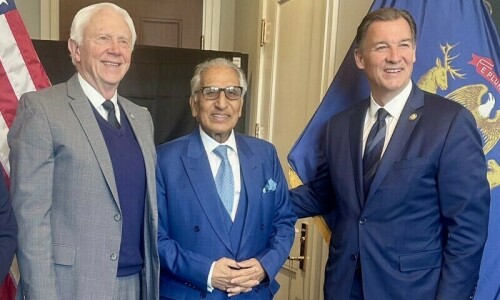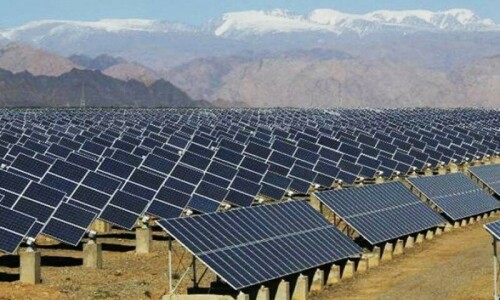ISLAMABAD: The World Bank has approved $102 million in financing for a project aimed at expanding access to microcredit and strengthening the resilience of Pakistan’s microfinance sector, particularly against climate-related shocks.
The funding for the Resilient and Accessible Microfinance (RAM) project was approved by the World Bank’s board of directors on Tuesday, according to a statement issued by the bank’s Resident Mission in Islamabad.
“Microfinance is a critical tool for supporting the livelihoods of vulnerable populations in Pakistan,” said Najy Benhassine, World Bank Country Director for Pakistan. “This project will help strengthen the resilience of the microfinance sector, particularly in the face of growing climate risks, ensuring that the sector can continue to provide essential financial services to those who need them most, especially in rural areas.”
The project is part of the bank’s broader commitment to promoting financial inclusion in Pakistan and increasing resilience to climate change, “as spelt out in our new 10-year Country Partnership Framework, Mr Benhassine said.
The RAM project is expected to benefit nearly 1.89 million people (including more than 1m women and over 350,000 youth), especially those in vulnerable and low-income rural communities.
By providing financial resources to microfinance institutions, the project ensures that they can continue to provide services even during climate-induced financial pressures. The project will provide increased access to microcredit for individuals and small businesses, providing them with ‘recovery loans’ to help them gain financial stability.
“The project has been designed based on lessons learned from the devastating floods of 2022 and is a significant step to bolster financial inclusion in Pakistan,” said Namoos Zaheer, Task Team Leader for the project. “It will enhance economic empowerment and resilience of those at the bottom of the economic pyramid, particularly women, small farmers and families in rural areas who are more prone to climate shocks.”
The project will be implemented by the Ministry of Finance through the State Bank of Pakistan. It will be the first in a series of interventions to support the sector, to be designed and phased in close partnership with other international financial institutions.
Key components of the project include the establishment of a Climate Risk Fund, innovative use of agrotechnology solutions, capacity-building for microfinance institutions, and the development of risk management frameworks to enhance the sector’s resilience.
The project is co-financed by a $23m grant from the Global Shield Financing Facility (GSFF), which is a multi-donor trust fund hosted by the World Bank Group and financed by the governments of Canada, Germany, Japan, Luxembourg and the United Kingdom.
The GSFF supports poor and vulnerable countries and people with increased access to financial protection against climate shocks, disasters and crises.
Published in Dawn, March 20th, 2025













































